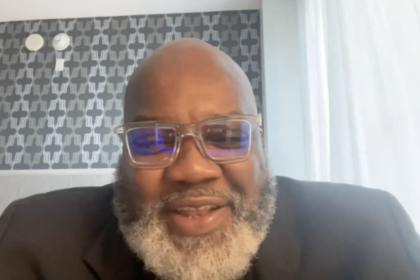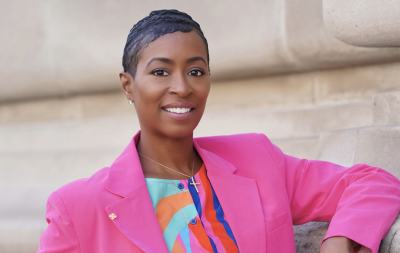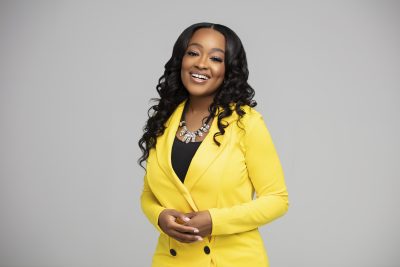
Nichelle Gainey is founder and president of SilverStone International, a full-service, marketing, technology and business management firm, with offices in New York City and Birmingham, Alabama, that provides tailor-made business strategies and critical access for world-class global sports and business clients. Her career highlights include being the youngest woman appointed to the prestigious 2010 Fédération Internationale de Football Association World Cup organizing committee in 2006 by Jakaya Mrisho Kikwete, president of the United Republic of Tanzania and chairman of the African Union. She also was instrumental in coordinating American involvement with IT and infrastructure at the newly built stadiums for FIFA’s 2010 World Cup in South Africa as well as media strategies for African content to be viewed in North America. This year, she served in an advisory role on the local organizing committee for the 2014 FIFA World Cup in Brazil. Gainey has a bachelor’s of science degree in chemistry/biology from Alabama Agricultural and Mechanical University and a master’s degree in education from Florida State University. After college, she’d considered becoming an orthopedic surgeon but turned to education instead, teaching advanced placement chemistry at a Fort Meyers, Florida, high school, where she also coached the girls’ soccer team and led the girls’ volleyball team to a state championship. Her love of sports landed her a position as an assistant commissioner at the Southwestern Athletic Conference, and she served on the National Collegiate Athletic Association’s Division 1 Soccer Championship Bid and Site Selection Committee, helping to develop the NCAA’s multimedia platform and spearheading an effort that successfully established women’s soccer programs at all historically black colleges and universities.
What inspired you to become an entrepreneur?
I have always been inspired by innovation and curious about why I didn’t see women in leadership positions. I am descended from entrepreneurs, having watched my grandmother farm her own land during the time of sharecroppers. My great-great-grandfather also was a farmer and one of the few African Americans in rural Alabama in the 1800s who owned his own land. He farmed the land with his family and sold cotton to pay for his children and grandchildren to attend college at an HBCU to provide a better life. As a military brat [her late father was a sergeant first class in the U.S. Army who started a restaurant and catering business after his retirement], it was instilled in me on both my mother’s and father’s sides of the family that in life you sometimes have to pave your own way and many times it’s a road that will be less traveled.
What would you say have been the keys to your success?
The journey in the pursuit of success for me has always been a strong family support system, integrity, discipline, motivation and to love what you do. When you love what you do, you laugh often. My sister and best friend passed away from breast cancer in 2012, and she was my biggest supporter. Every day, I am inspired by how she lived a purpose-filled life and was a very savvy businesswoman who worked in human resources for corporate Home Depot. I also learned lot about leadership from my three brothers, who were all commissioned officers in the United States Army; two are currently are serving as colonels in Washington, D.C., and one is a principal of his own IT firm based in Atlanta. As an NCO, my father raised his sons to be saluted and took great pride in saluting them, too. He also raised his daughters to be successful. My family is my blueprint for what success is and what success looks like, and my mother and father believed in creating a life balance to achieve success.
Please share three business principles that are most important to you.
I have more than three principles that are important to me. I have always believed that you must stay current; give back; set goals; help others, even when the favor is not returned; have fun; surround yourself with people smarter than you; and always, always continue learning.
You are a proud HBCU alumna. What impact did the HBCU experience have on you, personally and professionally?
I am a proud fourth generation graduate of my beloved Alabama Agricultural and Mechanical University, where I fully participated in student government, sorority life, swim team, intramural soccer and as one of the student ambassadors selected by the president, known as the University Echoes. My HBCU matriculation was the best experience because it helped shape me into the person I am today. HBCUs have taken on the role that is more than getting a student to read, write and to do arithmetic; they have mentored and nurtured our young men and women, who often come from dysfunctional families and poor families, since slavery. For other universities, that just wasn’t their job. So, when I continued my education at FSU, I was prepared and focused due to the foundation that was set in my undergraduate years.
As the head of a woman-owned and -controlled business, being an HBCU graduate has equipped me professionally to be present, focused and prepared for whatever is thrown at me. I don’t believe in failure, and I don’t believe in NO. There is always a way that I can turn a NO into a YES. The best compliment I’ve received was at the 2006 FIFA World Cup in Germany, when I met [ESPN President] John Skipper, who at the time was executive vice president of content for ESPN. He said to me, “Ms. Gainey, you are persistent without being annoying, and that’s a good thing.” My company signed a contract in 2007 with ESPN to help with marketing the film, “Black Magic” — a documentary and sports film [about the U.S. civil rights movement as seen through the game of basketball and the lives and challenges of its African-African players], which led to the [ESPN documentary series] “30 for 30” and what you see now in film and documentary. It was one of the most successful launches to date for any one of their film series, and my company is listed in the film credits. That was a game-changer for SSI because we were already global, but now we were able to partner up with a brand in North America. I still consult and advise as needed with ESPN on FIFA World Cup media strategies. That and other opportunities would not have happened without my experiences at an HBCU and through the mentoring and nurturing of my professors who always believed in me and demanded more.
United Negro College Fund President Michael Lomax has been a leader in the field of education for years. As a result of his leadership, Koch Industries and the Charles Koch Foundation recently gave $25 million to UNCF to establish the UNCF/Koch Scholars program. The money will enable UNCF to award scholarships to deserving black college and college-bound students, help financially struggling UNCF-member HBCUs and fund other UNCF initiatives. Would you say that kind of donation is important? Why?
Any investment in an HBCU — whether large or small, through its alumni, entertainers or the Charles Koch Foundation — shows that they believe in the future of these United States of America. HBCUs are the future and have created and will continue to create strong leaders, entrepreneurs, scientists, mathematicians and economists to help in the sustainability of our great nation. We can’t expect organizations like the Charles Koch Foundation to save our students and HBCUs. HBCUs are more diverse now than they have been in the past, which shows that there is a demand to receive a quality education at an affordable price. Donations like the Charles Koch Foundation’s show that continued commitment will increase the investment in our youth, which will give them the power and confidence to change the world.
Why are entrepreneurs important to the black community’s economy?
Entrepreneurship helps stimulate the economy. Entrepreneurs bring new ideas to their communities, which lead to job creation, which leads to economic development. When entrepreneurs hire people within their communities, those they hire go out and spend in the community. That provides tax revenue, and tax dollars are used to provide a wide range of important services that improve such areas as healthcare and education. The more you support entrepreneurship, the better off the communities and towns will be.
Is there anything else you would like to add?
I want to focus on female entrepreneurs, who are typically not the focus. Women have been the engine for economic growth and should be supported within their communities. It is proven that economically empowering women benefits communities as businesswomen reinvest profits in social goods, meaning stability for youth and benefits to the general public, local churches and local schools. In many places around the world, women are not part of the economy. I want to give a voice to something that is dear to me. A new generation of female African and Middle Eastern entrepreneurs is beginning to spring up across the continent. But businesswomen still face challenges accessing finance and other support. Businesses owned by women receive only 1 percent of worldwide government procurement contracts, which account for 10 percent to 15 percent of global GDP [gross domestic product], according to the ITC [U.S. International Trade Commission]. So when the debates start about African American entrepreneurs, keep in mind that African American women-controlled businesses need to be supported in their respective communities because women entrepreneurs reinvest 90 percent of their revenue into their communities. At SilverStone International, we are always looking for integrated partnerships that can be mutually beneficial to the clients and communities we serve. At SSI, we understand that sports is more than just a game.















